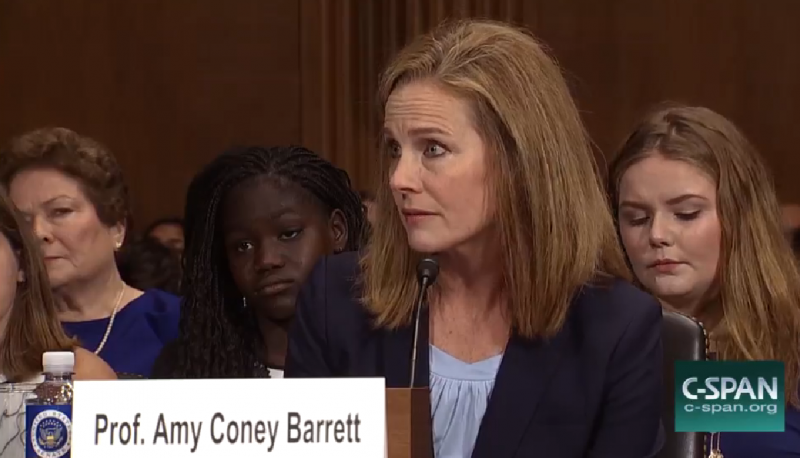“Confirmed Judges, Confirmed Fears” is a blog series documenting the harmful impact of President Trump’s judges on Americans’ rights and liberties.
Trump Seventh Circuit Judge Amy Coney Barrett recently dissented from a ruling that a man on trial for murder was denied the effective assistance of counsel when the trial judge held a closed session before the trial to question the man, Scott Schmidt, and ordered that his lawyer could not participate. As a result of that session, the judge ruled that Schmidt could not present an important defense at trial, and he was convicted of first-degree murder.
In the case, Schmidt v. Foster, Schmidt was pursuing what is referred to as federal habeas corpus relief from a Wisconsin state court conviction that was affirmed on direct appeal. Congress and the Supreme Court have made clear that federal courts can grant such relief and effectively reverse a state court conviction only where the state court’s decision was “contrary to, or involved an unreasonable application of, clearly established Federal law” according to Supreme Court precedent. The Seventh Circuit majority, including Judge David Hamilton and Judge Diane Wood, ruled that Schmidt’s case met this rigorous standard.
Specifically, Schmidt did not deny that he had killed his wife, but wanted to rely at his trial on the state law defense of “adequate provocation,” including testimony from some 29 witnesses, to mitigate the crime to second-degree homicide.
The state trial judge conducted a hearing before the trial to determine if there was enough evidence to present the defense to a jury. Schmidt’s lawyer presented written and other evidence at that hearing, but the judge then decided that he himself would question Schmidt—alone—at a closed session. The judge ordered that Schmidt’s lawyer could attend the session, but could not “speak or participate.” After his questioning of Schmidt, the judge ruled that the defense could not raise the issue of “adequate provocation” to the jury at trial, and Schmidt was convicted of first-degree murder.
The Seventh Circuit majority found that this “unprecedented” closed session in which Schmidt’s lawyer could not participate clearly violated his right to effective assistance of counsel under the Sixth Amendment, that the state appellate court rejection of that claim was an “unreasonable application” of “clearly established Supreme Court precedent” and caused “substantial prejudice.” As a result, they ruled that Schmidt should be given a new trial or resentenced to the lesser punishment he would have received for second degree homicide.
Barrett, however, dissented. She accepted the state’s argument that the closed session had not been specifically determined by the Supreme Court to be a “critical stage” in a criminal proceeding where the right to counsel applied, particularly since it was not an “adversary” proceeding where prosecutors or police were present, and that a judge could properly conclude that the procedure did not violate Schmidt’s rights.
The majority strongly disagreed. It was not surprising, they explained, that there was no Supreme Court case specifically about the closed session, since that session—including the judge’s “ground rules for his inquisition” of Schmidt—was so unprecedented. That session, the majority elaborated, was similar to the way judges effectively conduct trials in “European legal systems” and is “not compatible with America’s judicial system.”
The majority carefully analyzed the Supreme Court’s rulings on the right to counsel, and concluded that what mattered was not whether prosecutors or police were present at a proceeding, but whether the defendant faced a “confrontation” with the government—in this case, the judge—during which the assistance of a lawyer would be useful and “substantial rights” are at stake. That was clearly true here, the majority ruled. In contrast, the arguments of the state and Judge Barnett “unreasonably applied” Supreme Court precedent and “ignored reality in favor of a formalism that the Court has not adopted.”
Judge Barrett was outvoted by the majority in Schmidt. But with one more vote, she would not only have deprived him of his Sixth Amendment rights, but also set a precedent that would have harmed others throughout the circuit (Illinois, Indiana, and Wisconsin) and made much more difficult the appropriate federal court review of improper state convictions.

